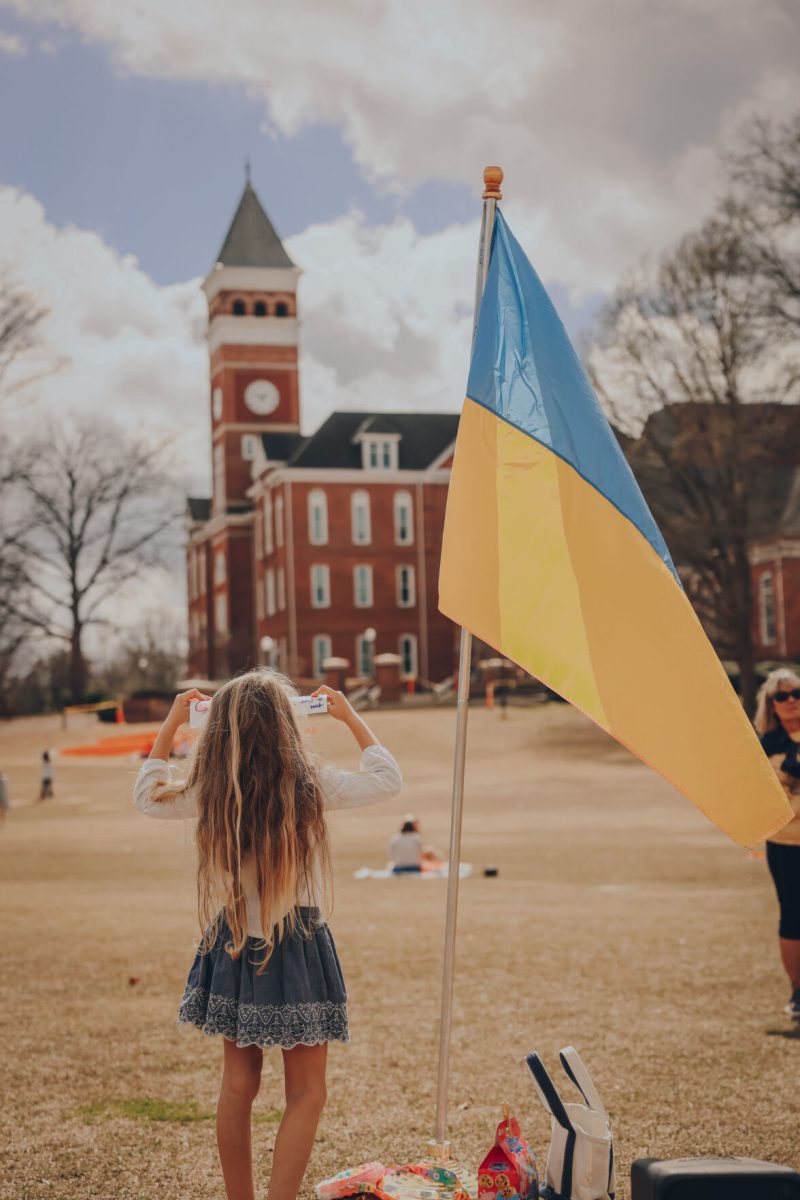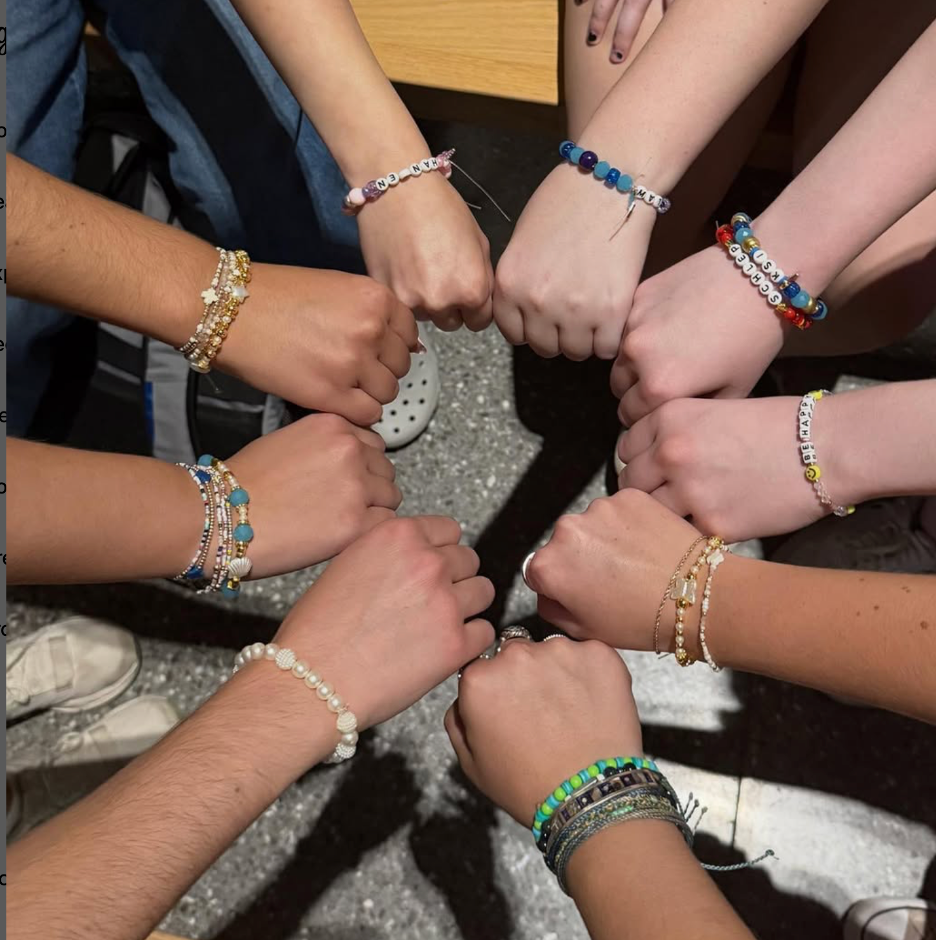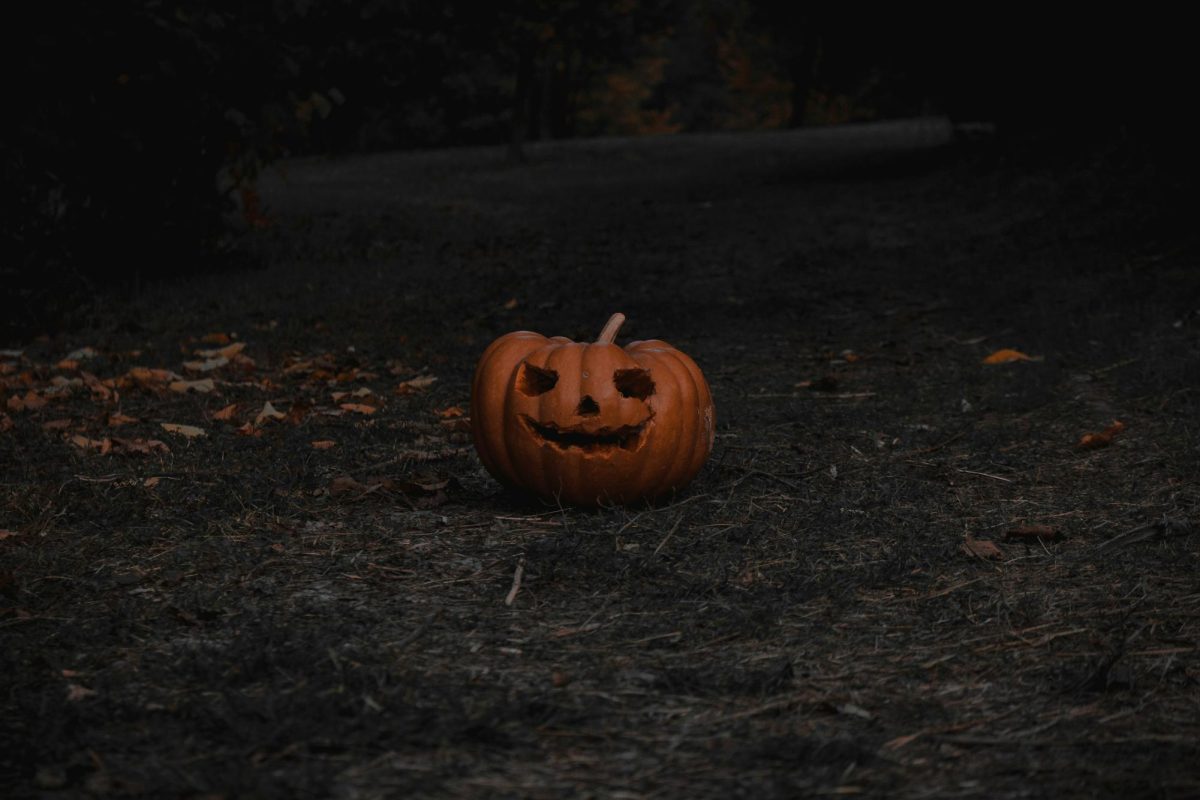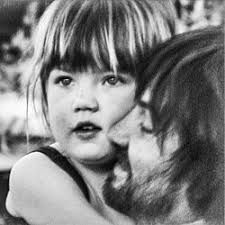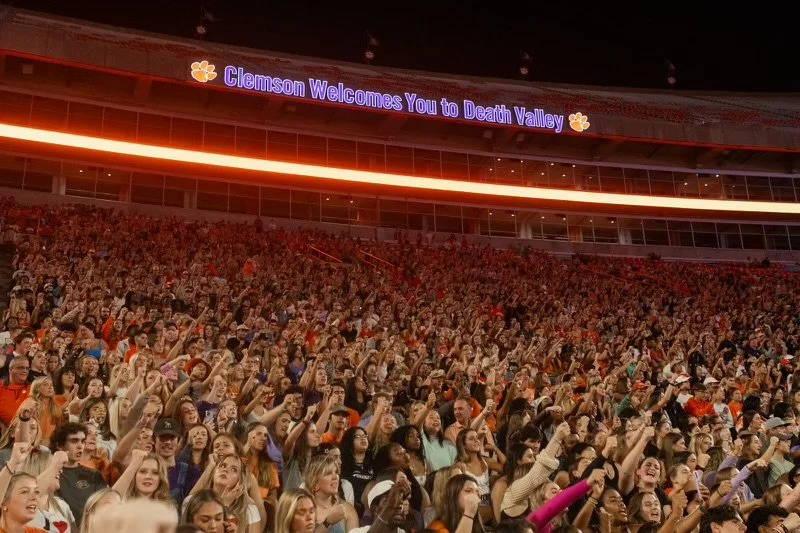“Invasion of Ukraine: An Interdisciplinary Colloquium,” a series of conversations and film teach-ins focusing on the current conflict in Ukraine, came to a close on Thursday, April 14.
The four film teach-in events and three conversations were hosted by a combination of Clemson University faculty and guest speakers from other universities.
Dr. Aga Skrodzka, associate professor of film and media studies in the departments of world cinema and English, spoke on her combined efforts with the many contributors who made the event possible.
“We organized ‘The Invasion of Ukraine’ series almost overnight to meet the pressing need to learn about the Ukrainian society, its culture and the current conflict with Russia. Over 20 faculty from [the college of art, architecture and humanities] CAAH were involved in organizing the program, promoting it and presenting at different events. I want to thank my colleagues for their generosity of spirit, but also the time and work that they invested in developing the program at the busiest time of the semester. And, of course, I am grateful to our students for engaging in a very difficult, yet most important conversation.”
The inspiration for the event stemmed from a desire to bring awareness of the Ukrainian conflict to the student body in the most in-depth and accessible way possible.
Dr. Skrodzka explained, “As a Film Studies professor, I turned to the recent Ukrainian cinema for an in-depth and nuanced appraisal of the war in Ukraine. The film medium has an uncanny ability to bring the experience of war to the spectator in ways that command an immediate, often visceral, response. The images of suffering and survival demand ethical thought, and in the way they linger in our memory and alter our imagination, they ensure that the ethical thought leads to ethical action.”
Dr. Steven Marks, alumni professor in the department of history and geography, and Dr. Luca Barattoni, associate professor in the departments of languages and world cinema, led the first film event of the series on March 30, discussing Sergei Loznitsa’s 2018 film “Donbass.”
This was followed April 1, by Dr. Maziyar Faridi, assistant professor in the departments of English and world cinema, and Dr. Skrodzka’s film teach-in of Alina Gorlova’s “This Rain Will Never Stop” (2020).
Dr. Olga Volkova, senior lecturer in the departments of languages and world cinema, led a discussion on April 7 of Sergei Parajanov’s “Shadows of Forgotten Ancestors” (1965) alongside Dr. Skrodzka.
On April 12, the final film teach-in was led by Dr. Jamie Rogers, lecturer in the English department, and Dr. Gabriela Stoicea, associate professor in the departments of languages and world cinema, discussing Iryna Tsilyk’s 2020 film “The Earth Is Blue as an Orange.”
The conversational lectures began April 6 with “Becoming Zelensky: Media, Politics and Resistance,” given by Lucian Ghita, professor in the department of English, and Johannes Schmidt, professor in the department of languages.
The lecture was followed on April 13 by William Terry, associate professor of the departments of geography and world cinema, discussing “Geopolitical Mapping and Ukraine: Using Virtual Reality to Shape Reality.”
On April 14, the series concluded with ”Stolen History, Stolen Heritage: Ukraine, Eastern Europe and Russian Colonialism,” a lecture presented by Dr. Andreea Mihalache of the school of architecture, and Dr. Kateryna Malaia of Mississippi State University’s college of architecture, art and design.
Upon the event’s closing, faculty at Clemson continue to do all they can to offer support to Ukraine during this time.
“Many of the students and professors who attended the series have engaged in concrete efforts to bring relief to the Ukrainian people,” stated Dr. Skrodzka. “One such initiative is being organized by Dr. Angela Naimou [associate professor in the department of English] and Dr. Maziyar Faridi, who are conceptualizing ways in which our University campus could serve as a refuge for those who are forced to abandon their homes in Afghanistan, Syria, Ukraine and other locations, to find safety. In collaboration with Every Campus a Refuge, Naimou and Faridi are asking our learning community to also become a material sanctuary to refugees.”
Organizers of the event wish to thank all contributors who presented or lectured for the event, the departments of world cinema, languages and the humanities hub, as well as a special thanks to Camille Cooper, associate librarian at the University libraries, for securing the films and necessary screening rights for the event.



